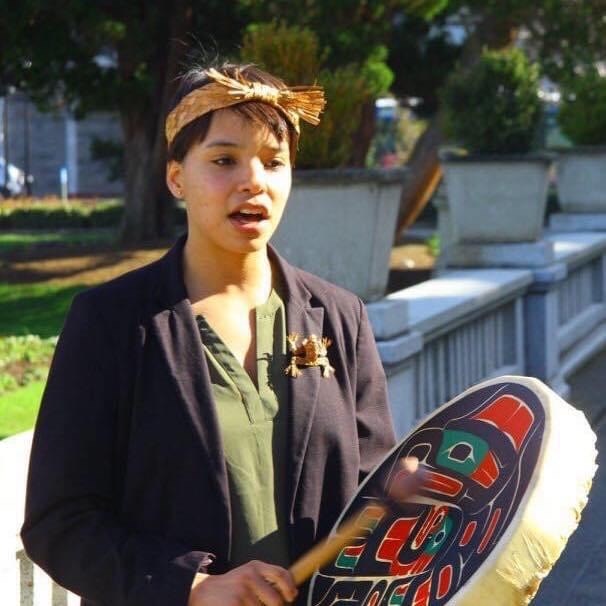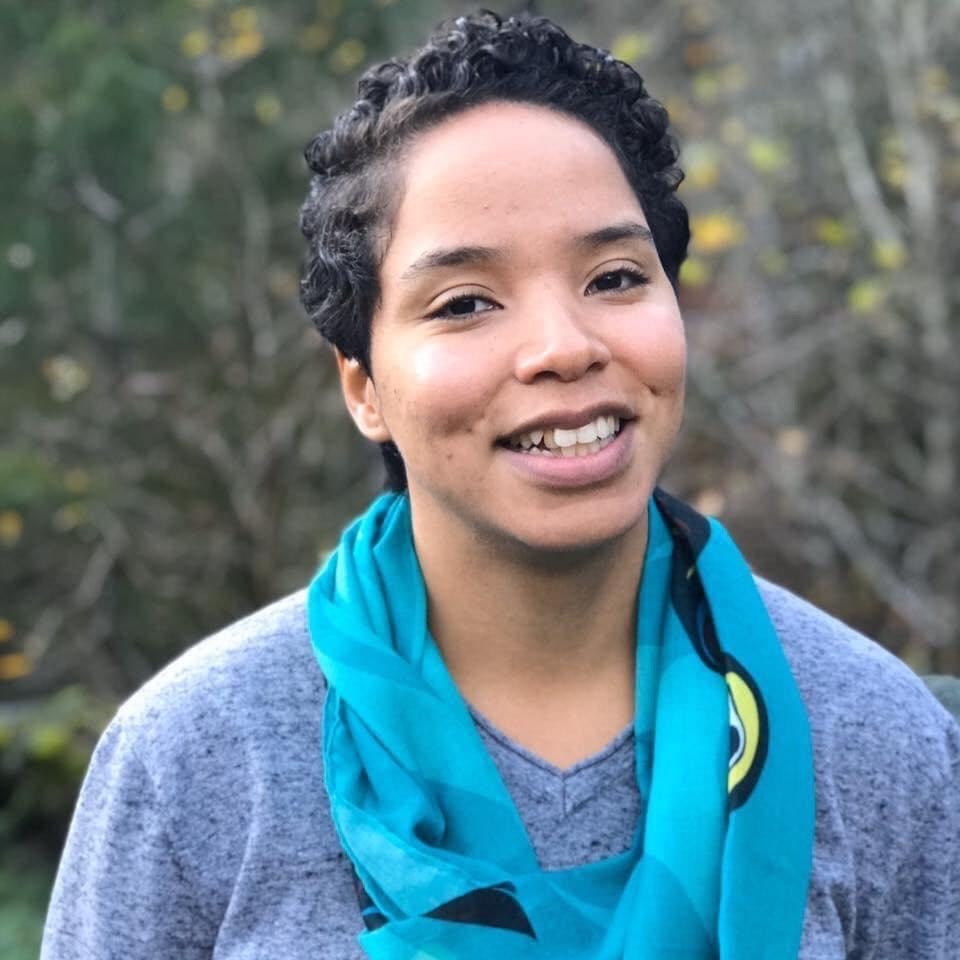Taylor McCarthy was set to hop in her Jeep and cross the border, en route to a U.S. Navy boot camp when The Chief caught up with her late last week.
The once-Squamish Nation council candidate and former Woodfibre LNG employee will graduate from Capilano University this summer with a communications degree, but by then, she will be knee-deep in her next adventure.
She talked to this paper about why she is joining the American military, being Black and First Nations, and racism in Canada. What follows is a version of that conversation that has been edited for length and clarity.
Q: What was your thought process in wanting to join the U.S. Navy?
A: I have always wanted to serve in the military. I wanted to follow in my late dad's footsteps in some way. My dad was in the U.S. Army for 11 years, in telecommunications. He worked in Germany for four years of that. He talked fondly of living in Germany, learning the language, meeting so many people who are still friends with him in spirit, and now they are my friends because they loved and adored my dad.
What made me join the Navy was that when I was in high school I was in a cadets-type program. So, I already have that navy-type background.
I am going in as an E3, which is the third rank from being a recruit. It is kind of a win-win for me.
Q: What are the next steps?
A: I go to boot camp in Great Lakes, Illinois on July 7. For about nine weeks. After that, I will most likely be going to Fort Sam Houston, in Texas, where I will study to be a hospital corpsman. They help nurses treat sailors and their families.
For example, most recently, in New York, there was a Navy ship, USNS Comfort, and medical personnel on there helped with the COVID-19 pandemic surge. I am also going to train to be a dental assistant, so I have to go to a C-school for that advanced training. I am not out of the tunnel when it comes to schooling.
Q: You are leaving at a time when the Black Lives Matter movement is at a peak. You are Squamish Nation and Black, so what are you thinking or feeling about all that at this moment in history as you cross the border?
A: Being a U.S. citizen and born and raised in Washington State, it hits close to home.
I was raised by my father who was African American and was born and raised in North Carolina. I didn't have a connection to my Squamish Nation family when I was young, except for my maternal grandmother, so I was brought up Black. What I love about Washington State is it is very diverse. I had lots of African American teachers all the way through. That representation back then really helped me.
But as I got older I saw that Black people were overrepresented in crime and justice stats in ways that weren't positive. And I started to learn the history of racial segregation, gentrification, and the Jim Crow laws and how African Americans were treated, including my grandparents. I was deeply hurt by learning that.
I moved to Canada in 2012 to gain residency here and learn about my mother's Squamish Nation side of my family.
I didn't know Canada's history with the residential school system. In 2013, I learned that my grandmother went to residential school as did her siblings and her parents. There is intergenerational trauma that came from that. To know that I didn't know any of that until I was a late teen, that hit me hard.
But I also have learned that on both sides, I come from resilient people.
With Black Lives Matter, I am really grateful that these injustices are being vocalized and in the media. We are in 2020, these injustices have always happened, even to my father and grandfather, but no one talked about it in the news.
When I hear of George Floyd or other Black men and women who are killed I think of my brother, sister and my dad.
I have a younger brother who is 24 who lives in the Lower Mainland and know that both my dad and brother have been subjected to racial profiling.
Police officers have pulled up to my brother and asked what he is doing or questioned why he is walking or driving in an area.
My dad was volunteering, doing the government census, going door-to-door and a white person called the police because they were suspicious of him just being in the neighbourhood. The police came and questioned him. That was deeply hurtful.
I just hope and pray that there are [stronger] laws put in place to prevent police from abusing their power.
And I believe strongly in the police and their role in protecting our people.
With the integrated First Nations policing units, I know so many of the constables who are great people and they have great relationships, especially with youth. I even considered becoming an officer. I believe in equal representation in police forces.

Q: What did you think of the strong and public stand the Squamish Nation leadership recently took in support of the Black Lives Matters movement?
A: It is really important to me, and I totally agree with it.
There are many members of the Nation, going back several generations, who are mixed Black and First Nations.
As long as we are all in solidarity and speaking out and speaking up, I feel welcomed as someone who is Black and First Nations — I don't have to pick a side.
Q: National Indigenous Peoples Day 2020 is June 21, how are you reflecting on that occasion this year — does it feel like a real and positive shift toward equality is happening?
A: I believe so. I also feel because of the pandemic, we can't have the big gatherings that we would like to.
I am really glad that my siblings are going to continue to live up here and continue to grow with the First Nation's culture. For me, being in the States, I am quite glad that western institutions are also starting to recognize that they are on unceded Coast Salish territory.
Even the church I went to in Tacoma where the pastor is white, he started to recognize the impact the church has had on Indigenous people. I hear a lot of people talking about changing the church and other institutions, like the police forces.
With the Indigenous Peoples' Day, and the revitalization of many aspects of our culture, I feel like it is becoming stronger than ever.



